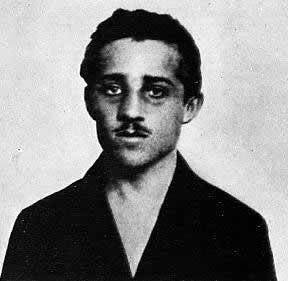WASHINGTON, June 28 (UPI) -- Iraq is in chaos. Afghanistan could follow suit. The Syrian civil war rages. From Libya in the west to Pakistan and India in the east, these regions are filled with ticking time bombs that could easily explode into major conflict. Suppose for example the Pakistani Taliban (TTP) believe that another Mumbai-like attack against India could provoke another war in which the two combatants possessed nuclear weapons. Pakistan almost certainly would lose. That loss could catapult the TTP into power overthrowing the fragile and less than competent government of Nawaz Sharif much as appears to be happening in Iraq. July 20th marks the deadline for the current phase of nuclear negotiations between Iran and P-5 plus one (five permanent members of the security council and European Union). If those talks are not extended or the deadlock over Iran's ability to reprocess spent fuel is not resolved, the West could be left with only one, very dangerous option---a military strike. Indeed, Israel could be in a position to pre-empt a strike forcing American cooperation. If this sounds like a Tom Clancy thriller or an Arnold Schwarzenegger adventure flick, those are the wrong analogies. We have been there before, exactly a century ago. One hundred years ago on June 28th, Austro-Hungarian Archduke Franz Ferdinand and his pregnant wife Sophie were shot and killed near a bridge in Sarajevo by a nineteen-year old Bosnian-Serbian anarchist named Gavrilo Princip. A few weeks later, World War I broke out. The reasons for that war were many and complex. Some of course blame Wilhelmine Germany in giving Austro-Hungary a blank check to deal with Serbia once and for all after the heir apparent to the throne was murdered. But personalities and the absence of checks and balances on the rulers and governments of Britain, France, Russia and Germany were strong ingredients in creating the so-called Great War and as President Woodrow Wilson wrongly called "the war to end all wars." A century later, a world war is unlikely to emerge from the horrors and chaos in these regions of instability and danger. However, regional wars of different sorts cannot be discounted. And, in these conflicts as the West should have learned from experience in Afghanistan and Iraq, the best armies, air forces and navies are incapable of defeating adversaries who lack armies, navies and air forces. The jihadi or extremist threats that emerge from many sources including the Shia-Sunni cleavages and the tragic appeal of a radical, perverted and violent form of Islam are contagious. Exacerbated by failed and failing government---and the incompetence, arrogance and stupidity of Iraq's Nouri al Maliki are clear proof---these ideological movements do not require strong military forces to achieve their objectives. Now, the Obama administration has the unsavory and unacceptable choice of committing American forces to Iraq or doing virtually little to roll back the onslaught of the Islamic State of Iraq and Syria (ISIS, also known as the Islamic State of Iraq and the Levant). No matter what Obama does, the risks are great and favorable outcomes impossible to predict. Returning to 1914, as the continent "sleepwalked to war," gallows humor pervaded the Kaiser's military headquarters in Berlin. The popular phrase of the day went like this. "In Paris at the Qui D'orsay, the situation is seen as serious but not yet critical. But we know better in Berlin where we know the situation is critical but not fully serious." A century later, a multitude of potential archdukes exist. More frightening, so too a surfeit of bullets abounds along with many potential assassins. And most frightening is that a bullet need not be fired at a particular archduke to provoke a crisis or conflict. That a desperate Tunisian fruit vendor could alight himself afire and catalyze an "Arab awakening" underscores this new reality. Muddling through is no longer enough. But will anyone in authority listen? And will anyone lead? If the answers are no, then the Beretta 9 mm automatic that Princip used to kill the archduke ironically will be replaced by far more dangerous and even catastrophic fuses to provoke major and enduring conflicts. ___________________________________________________________________ Harlan Ullman is Chairman of the Killowen Group that advises leaders of government and business, Senior Advisor at Washington D.C.'s Atlantic Council. This column comes from his latest book, due out this Fall, A Handful of Bullets: How the Murder of Archduke Franz Ferdinand Menaces Peace Today.
Advertisement















